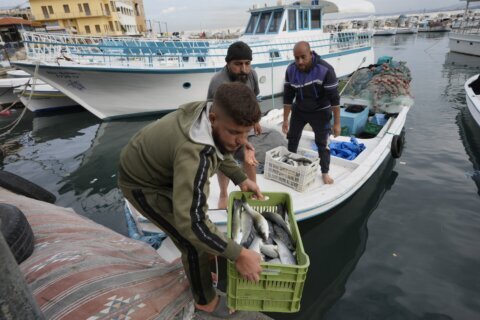As international students prepare to attend in-person classes in the fall at U.S. colleges and universities, they may be both concerned and confused about the coronavirus vaccine policies at many schools.
Eight COVID-19 vaccines have been approved so far by the World Health Organization for emergency use: Pfizer/BioNTech, three versions of the AstraZeneca vaccine, Johnson & Johnson, Moderna, Sinopharm and Sinovac.
Of those vaccines, only Pfizer/BioNTech, Moderna and Johnson & Johnson have been granted emergency use authorization by the U.S. Food and Drug Administration thus far and been widely distributed within the U.S.
Per a database maintained by The Chronicle of Higher Education, more than 500 U.S. colleges and universities will require students to get a coronavirus vaccine before the start of the fall term. The number of schools requiring COVID-19 vaccinations may change, and policies vary by school, with some saying any FDA- or WHO-approved vaccine is acceptable.
[Read: Colleges Requiring a Coronavirus Vaccine for Fall: What to Know.]
Here are some things international students should be prepared for:
— Students may need to quarantine at school.
— Remote learning may be a possibility.
— Revaccination may be required.
Students May Need to Quarantine at School
International students will not only need to understand their school’s coronavirus vaccination policy, if there is one, but also be prepared for potential quarantine procedures.
Apart from any Centers for Disease Control and Prevention quarantine guidelines upon arrival in the U.S., colleges and universities may have their own quarantine policies in place, which can vary by school. Students must also follow state and local recommendations and requirements as well.
For example, Iowa State University says on its website that incoming new international students ” may be asked to quarantine or practice increased safety precautions for up to a week after arrival.” Undergraduate and graduate students still in quarantine during new international student orientation will be offered a virtual orientation experience, the website says.
Dr. Sarah Van Orman, chief health officer at University of Southern California Student Health, says, “USC is requiring all students to submit proof of vaccination for COVID-19 in order to access campus facilities for the fall semester. If a student is not fully vaccinated with an FDA- or WHO-approved vaccine series, and is arriving from outside of the United States, the student is required to quarantine for seven days after arrival.”
At the University of California–Riverside, Dr. Kenneth Han, chief medical officer, says he anticipates that international students who are not fully vaccinated “will sequester with COVID-19 testing in place,” leaving only for essential tasks while wearing face masks and practicing social distancing. He says details are still being discussed with all campuses within the UC system.
[Read: 3 Steps Incoming Fall 2021 International Students Should Take.]
Meanwhile, Brian Ehrlich, Florida Institute of Technology‘s vice president for enrollment management, says, “We are not creating separate quarantine polices that are specific to Florida Tech.” He says the school requests that all students follow CDC guidelines for travel into the U.S. and any specific requirements based on the country from which they are arriving.
“Quarantine guidelines are evolving, and American University will communicate quarantine guidelines for partially or nonvaccinated students in early August,” says Senem Bakar, director of international student and scholar services at American University in Washington, D.C.
Bakar says students can quarantine in their residence hall room if living on campus or quarantine in their off-campus residence following D.C. Department of Health guidelines.
As international students plan for the coming fall term, those who reside in certain countries or areas affected by pandemic-related travel bans — the Schengen Area, the United Kingdom, Ireland, Brazil, China, Iran, South Africa and India — can enter the U.S. under national interest exceptions by the U.S. Department of State.
“Students with valid F-1 and M-1 visas for academic programs starting August 1, 2021 or later do not need to contact the embassy prior to traveling. Students may not arrive in the United States more than 30 days before the beginning of their studies,” a Department of State official wrote in an email.
Remote Learning May Be a Possibility
Once the FDA grants full approval to the coronavirus vaccines, as opposed to the current emergency use authorization, even more U.S. colleges will likely have a policy requiring all students, including international students, to be vaccinated against COVID-19. For some international students unable to get vaccinated in time for the fall term, remote learning may be a possibility, depending on the school.
“We anticipate students who are not fully vaccinated will have options for in-person and remote learning with safety measures in accordance with CDC and Riverside Public Health,” Han says.
Ehrlich says Florida Tech anticipates there may be situations where in-person learning may not be possible for international students due to difficulty securing a visa appointment at a local embassy, country and/or airline requirements to be vaccinated to travel, or personal health challenges.
“In those cases, we are allowing students to request remote learning and will evaluate those requests on a case-by-case basis depending on their specific circumstances,” Ehrlich says.
[Read: Can New International Students Take Online Classes?]
Other colleges will allow in-person learning for those who are unvaccinated as long as the students follow school policies. Van Orman says USC students who decline vaccination or are in the process of completing vaccination “can comply with campus policy through regular surveillance testing, once per week for graduate students and twice per week for undergraduates.” She says unvaccinated students can attend class and participate in campus activities if they are compliant with the testing policies.
Bakar says students who have not had access to FDA- or WHO-approved vaccines will be allowed on the American University campus while waiting until they are fully vaccinated.
“They will be required to follow the health and safety guidelines until they are fully vaccinated: 14 days after the second dose of Moderna or Pfizer or the single-dose J&J vaccination. These include being regularly tested and wearing face coverings both indoors and outdoors,” Bakar says.
Like many other U.S. colleges and universities, Bakar says the school will assist unvaccinated international students in obtaining an FDA-approved vaccine once students arrive on campus.
Revaccination May Be Required
International students who are partially vaccinated or have been vaccinated with a COVID-19 vaccine that doesn’t have either FDA or WHO approval may need to get revaccinated, depending upon the school. Per current guidance from the CDC, those arriving into the U.S. who received coronavirus vaccines that aren’t approved by the FDA or WHO may be revaccinated using one of the FDA-approved vaccines, though the recommendation is to wait a minimum of 28 days before taking the first dose.
Several schools — such as Johns Hopkins University in Maryland, New York University, Brandeis University in Massachusetts and the University of Chicago — require international students who have not received an FDA- or WHO-approved COVID-19 vaccine by the time fall classes begin to be revaccinated with one of the vaccines approved for use in the U.S. once they arrive on campus.
“If the student is partially vaccinated with a vaccine from outside of the U.S., the vaccine series will restart with the U.S. Food and Drug Administration-approved vaccines: currently Pfizer two-dose series and Johnson & Johnson/Janssen one-dose vaccines are available through USC Student Health,” Van Orman says.
However, some schools do not require revaccination. Boston University, for instance, has stated all COVID-19 vaccines satisfy the BU vaccine requirement, including those without WHO or FDA authorization or approval, according to the school’s website.
Michael Uhlenkamp, a spokesperson for the California State University system, says CSU is still in the process of developing its final COVID-19 vaccination policy but “the working assumption currently is that if a student receives a vaccine that was authorized by a body similar to the FDA in their country of origin that would fulfill the requirement.”
Other schools may not require a coronavirus vaccine at all. For example, Florida Tech “will not require our students to be vaccinated to attend classes,” Ehrlich says. However, he says the school is encouraging all students to get vaccinated and will host a local department of health on campus in the fall to offer vaccinations to students.
Experts say international students should check with their school regarding vaccine policies, which can change at any time. American University, Bakar says, believes the COVID-19 vaccines can help ensure students have the highest level of health and safety and notes the school “looks forward to welcoming back its international students this fall.”
Searching for a college? Get our complete rankings of Best Colleges.
More from U.S. News
What International Students Should Know About Health Insurance in the U.S.
Designated School Officials: What International Students Need to Know
11 Universities With the Highest International Student Acceptance Rates
International Students and COVID Vaccine Policy at U.S. Schools originally appeared on usnews.com







